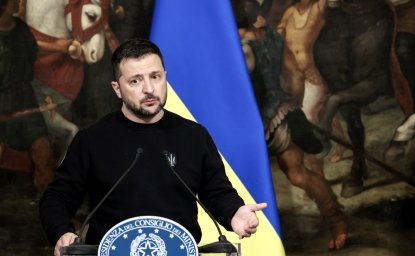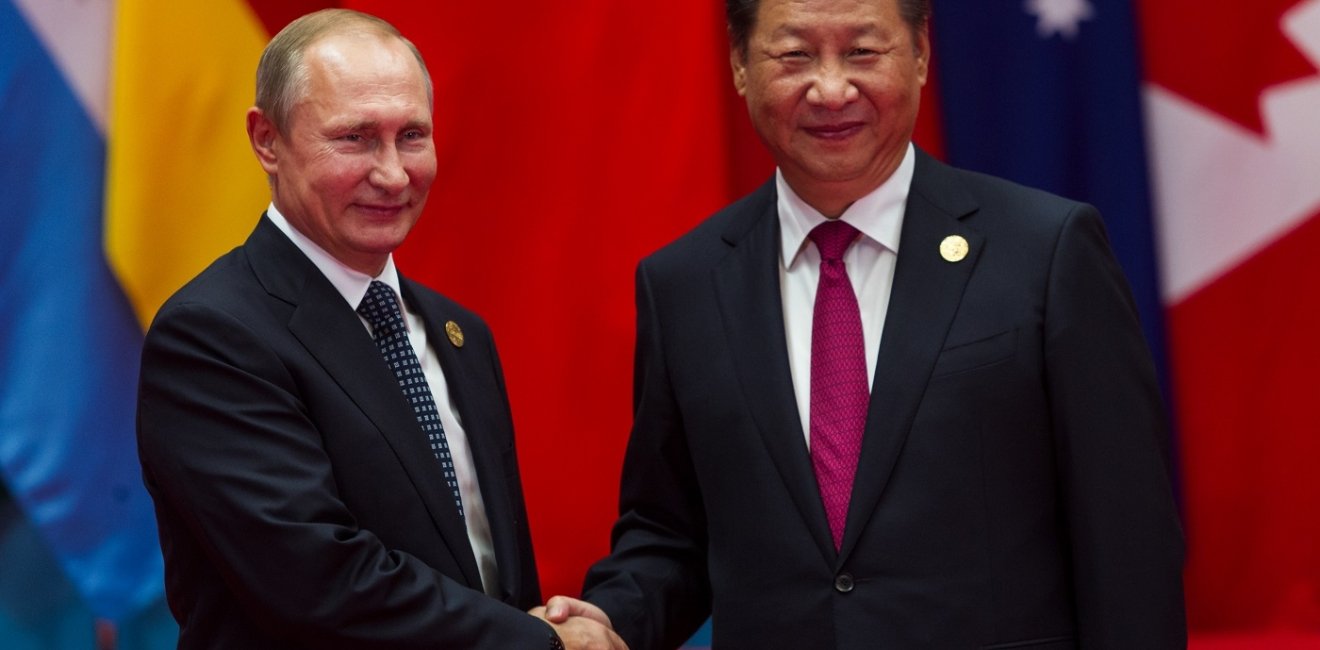
A blog of the Kennan Institute
BY ILIYA KUSA
Like many non-Western countries, China has formulated its stance on the Russia-Ukraine war in keeping with its general foreign policy approach and its perception of the value and purpose of international alliances. In general, China’s public pronouncements on the war have been confined to a few key messages, repeated from the first day of the invasion:
- Not only Russia but also the West, in particular the United States, are to blame for what has happened in Ukraine because the West has constantly ignored Russia’s security concerns.
- It is very important to establish a common security concept in the region and the world that takes into account the interests and concerns of all parties and is not dominated by the West.
Key inflection points of China’s thinking in this matter include the following:
- The West should recognize the principle of the indivisibility of security, which holds that the security of one country shall not be fulfilled at the expense of the security of other countries; and that this principle must become the basis of a new international security architecture.
- China, like Europe, wants the war in Ukraine to end as soon as possible, but the conflict drags on because of U.S. involvement.
- It is important to drop the Cold War mentality and the notion of blocs and shift to a multipolar, pragmatic international system in which non-Western countries play a more decisive role.
- The situations in Ukraine and in Taiwan are not comparable because Ukraine is a sovereign country that was attacked by another country, while Taiwan is part of China and is recognized as such by the world.
- China does not support unilateral Western sanctions against Russia because the United States uses these sanctions as a way to expand its influence and geoeconomic reach.
Opportunities and Risks for China
It is difficult to assess at this point whether the war in Ukraine has weakened or strengthened China’s hand in international relations. It has created certain opportunities as well as risks, which Beijing is still trying to evaluate and address properly.
Among the risks are the following: the toxic political situation is threatening China’s reputation and image abroad because of China’s close ties with Russia; political and ideological polarization in Southeast and South Asia is increasing; the war adds complexity to China’s relationship with Russia; and the Western economic sanctions enacted in response to the war have created challenges for Beijing in carrying out the Belt and Road Initiative as the sanctions and related financial restrictions are likely to imperil the transport of goods through Russia and Belarus.
In addition, the war in Ukraine has established grounds for the further consolidation of the NATO alliance, which China sees as aiding U.S. geopolitical goals. Both Moscow and Beijing perceive NATO not as a defensive alliance but as an instrument of American expansionism.
On the other hand, the war has opened up some major opportunities for China. A weakened Russia may drive Moscow away from the West and closer to Beijing as China’s “junior partner,” which is exactly how China has seen the relationship over the years. Furthermore, the war has triggered political, economic, and financial reactions from Europe and the United States, sometimes in unprecedented ways.
This exposure of Western sanctions capabilities, the West’s limits and “red lines,” provides valuable information to China on U.S. and EU response mechanisms and on their will to go beyond traditional diplomacy and use unconventional means of exercising pressure. This information is particularly vital for China in determining how it might respond in the event of a massive confrontation with the West, for example over Taiwan.
Finally, the war in Ukraine has pushed China to become more active in expanding its influence in Oceania and Central and South Asia, while the United States and the EU are burdened with hawkish policies toward Russia and domestic social and economic difficulties.
China’s Balancing Act
China’s position on and response to Russia’s war in Ukraine amounts to a careful balancing act. China is not interested in a long-term, high-intensity conflict because of the political, reputational, and economic risks such a war would bring. At the same time, Beijing doesn’t want to see Russia’s total defeat, which could lead to the installation of a pro-Western democratic regime in Moscow or, in a worst-case scenario, to the country’s disintegration as a result of a domestic political crisis.
Either outcome would create a whole new geostrategic environment that would negatively affect China’s strategic competition with the West. Beijing is therefore likely to lobby for a quick cease-fire for the rest of the year, regardless of the conditions of the cease-fire.
China is likely to proceed with its “distance diplomacy” and avoid directly supporting Russia, being wary of Western sanctions. Moreover, China does not see Russia as vital for the modernization of its national economy. For this, Beijing clearly sees its economic and technological future as lying with the European markets.
Nor does Beijing need Russia as a powerful ambitious neighbor with supraregional influence and nationalist leaders operating out of historical resentment. China has always seen Russia as a medium-strength player and a situational partner in the global competition with the United States, one that China could rely on in some regional security matters, such as the conflicts in Afghanistan or Syria or border security in Central Asia.
A partial weakening of Russia as a result of the war and Western sanctions is something China is ready to accept, as this would make Russia more dependent on China and eastern markets, enabling Beijing to bind Russia as a “resource asset” and expand China’s presence in the Russian market in key industrial and economic sectors.
On the other hand, there is a clear understanding in Beijing of Russia’s security concerns, especially Russia’s frustration with the United States over the latter’s apparent interest in expanding NATO and surrounding Russia with military bases, and its blindness to how such actions might resonate in Moscow. The war in Ukraine has dealt a heavy blow to the post-Cold War security architecture, dominated by Western allies, and created opportunities for its redesign.
This is of particular interest to China as Beijing has focused its foreign policy efforts on pushing for what the leadership sees as a fairer and more representative multipolar world order. In such an order the United States would lose its global dominance.
China’s Geostrategic Calculations
It is fair to say that China’s position on the Russia-Ukraine war has nothing to do with Ukraine but rather must be viewed through the lens of China’s geostrategic competition with the United States. The future of Ukraine is a secondary issue. That is why China is unlikely to join in any anti-Russia sanctions: not because Beijing supports Moscow’s military invasion of Ukraine but because acceding to those sanctions would mean submission to U.S. will, which is unacceptable to Beijing.
On the other hand, China seems ready to play a role in mediating a cease-fire in Ukraine, but it would like to do so on an equal footing with the United States and the EU, and probably only after Beijing has reached an agreement with Washington and Brussels. This is what makes China appear ambivalent about wholeheartedly supporting either party in the Russia-Ukraine war. Its geopolitical calculations lead to a careful calibration of responses, and minimal involvement.
The opinions expressed in this article are those solely of the authors and do not reflect the views of the Kennan Institute.
Author


Kennan Institute
The Kennan Institute is the premier US center for advanced research on Eurasia and the oldest and largest regional program at the Woodrow Wilson International Center for Scholars. The Kennan Institute is committed to improving American understanding of Russia, Ukraine, Central Asia, the South Caucasus, and the surrounding region though research and exchange. Read more

Explore More in Focus Ukraine
Browse Focus Ukraine
Building a Thriving Ukrainian Design Community Now

Ukraine Seeks to End the War. What's Wrong With the “Peace Scenarios”?


